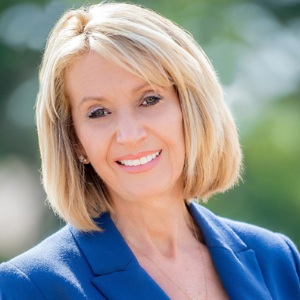Marcia McNutt

A geophysicist, McNutt earned her bachelor’s degree in physics at Colorado College and her Ph.D. in earth sciences at Scripps Institution of Oceanography, University of California, San Diego. Her research concentration is in marine geophysics, where she has used a variety of remote sensing techniques from ships and space to probe the dynamics of the mantle and overlying plates far from plate boundaries on geologic time scales. She is the author or co-author of more than 100 peer reviewed articles and has made important contributions to the understanding of the rheology and strength of the lithosphere. She has demonstrated that a deep-seated, large-scale mantle thermal anomaly has been very persistent. It is not only producing midplate volcanoes in the island chains above its location deep beneath the central Pacific, but also produced older volcanic chains now submerged in the northwest Pacific that erupted as the Pacific plate drifted over the central Pacific over the last 100 million years.
McNutt began her faculty career at the Massachusetts Institute of Technology (MIT), where she became the Griswold Professor of Geophysics and served as director of the Joint Program in Oceanography & Applied Ocean Science & Engineering sponsored by MIT and the Woods Hole Oceanographic Institution. She later served as president and chief executive officer of the Monterey Bay Aquarium Research Institute and as professor of geophysics at Stanford University. From 2009 to 2013 she was the director of the U.S. Geological Survey (USGS), one of the federal government’s major science agencies. While at the USGS, she helped lead the response to the Deepwater Horizon oil spill, for which she was awarded the Meritorious Service Medal by the U.S. Coast Guard. She also oversaw completion of the ground station for Landsat 8, which was launched in February 2013 and continues Landsat’s 40-year record of satellite imaging of natural and human-induced changes on the global landscape. McNutt became the 19th editor-in-chief of Science in 2013. As editor-in-chief she led the effort to establishScience Advances, an open access, online-only offspring of Science. The world’s largest society of earth scientists, the American Geophysical Union (AGU), awarded her the Macelwane Medal in 1988 for research accomplishments by a young scientist and the Maurice Ewing Medal in 2007 for her significant contributions to deep-sea exploration.
